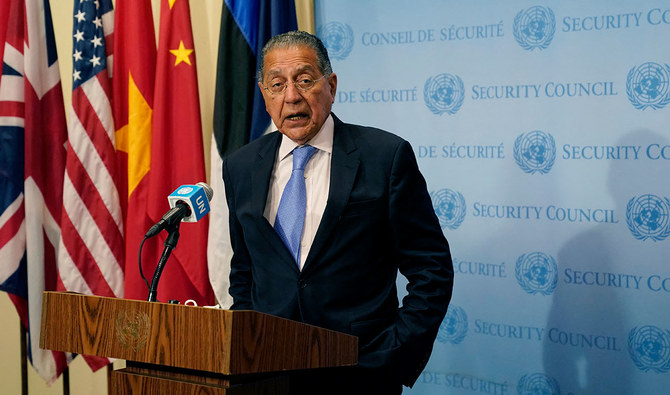ISLAMABAD: Pakistan’s envoy to the United Nations, Munir Akram, on Friday apologized for his comments about the Pashtun culture which drew flak on social media after he termed the Afghan Taliban government’s ban on women’s education and work a “distinctive cultural reality” of Afghanistan.
The Pakistani diplomat briefed member states on two high-level UN visits to Afghanistan on Thursday and said the Taliban’s decision to bar women from seeking education and employment did not stem from religious beliefs but was an aspect of the Pashtun culture that required women to stay at home and had remained unchanged for hundreds of years.
Akram’s statement was widely criticized on social media by both Pakistanis and Afghans, with Afghanistan’s ambassador to Sri Lanka asking the UN to “immediately refute this piece of disinformation” and saying Pashtun girls had been attending schools and universities since time immemorial.
In response to the criticism, Akram issued an apology, saying his words “did not accurately reflect Pakistan’s position.”
“My apologies for the hurt caused by my comments at the humanitarian briefing on Afghanistan,” he wrote on Twitter. “I [misspoke] & my words did not accurately reflect Pakistan’s position.”
“I have deep respect for Pashtun culture,” he continued. “Denying women & girls access to education is neither Islamic nor Pashtun culture.”
Earlier, Akram said he meant “no disrespect” to the Pashtun culture which was “highly progressive and deserves all respect across the world,” the state-owned Associated Press of Pakistan (APP) news agency quoted him as saying.
The Pakistani envoy said he had referred to a “peculiar perspective” of a small minority, which had resulted in restrictions on Afghan women, according to the report.
The restrictions were “not consistent with Islam and the Sharia, which provides all rights to women, including to work and education,” he added.
Last year, the interim Taliban government in Afghanistan provoked anger in many parts of the world when it issued edicts banning women from attending universities and secondary schools. The Afghan government also ordered local and foreign aid organizations to ban women from working in their offices.
Afghanistan’s Taliban rulers justified the move by saying some women had not adhered to their interpretation of the Islamic dress code.
















